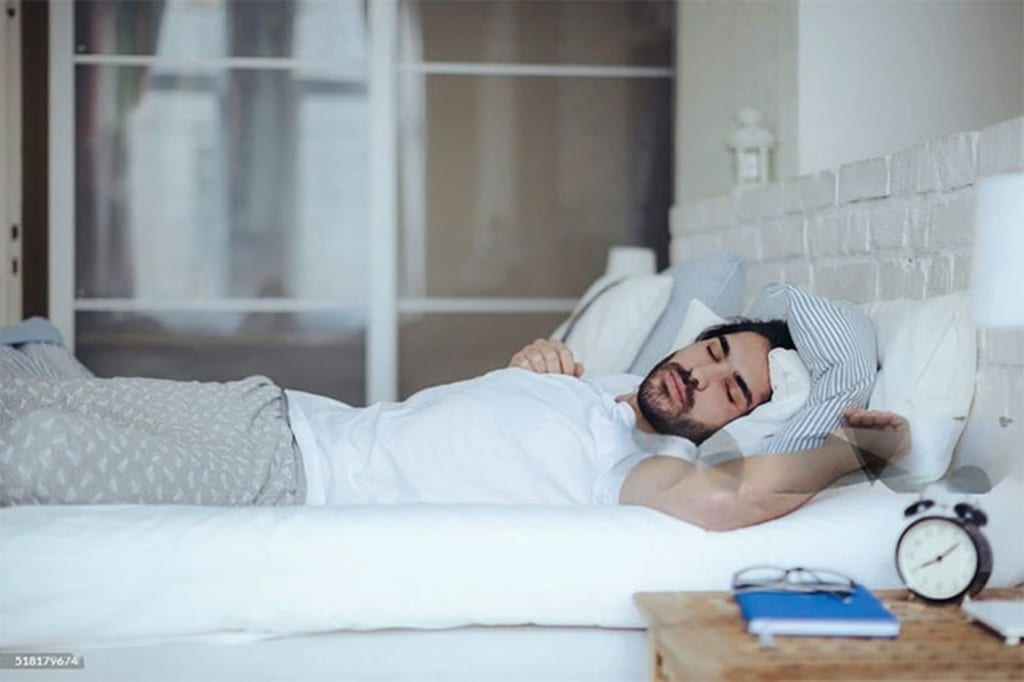What happens when you sleep too much?
Getting enough sleep every day is the best medicine for your health. Sleeping too little will affect your physical health, mental health, and beauty, but sleeping too much over a long period of time is equally harmful. Depending on age, gender, and physical condition of each person, the need for sleep time is different. However, on average, adults need about 7-8 hours of sleep per day.

Getting enough sleep every day is the best medicine for your health. Sleeping too little will affect your physical health, mental health, and beauty, but sleeping too much over a long period of time is equally harmful.
Depending on age, gender, and physical condition of each person, the need for sleep time is different. However, on average, adults need about 7-8 hours of sleep per day.
Many consequences
Doctor Dinh Minh Tri (Ho Chi Minh City University of Medicine and Pharmacy) said that sleeping too much does not make the body healthy but also causes many health consequences, so attention is needed.
Sleeping too much is also not good for overall health

Sleeping too much is also not good for overall health
Prone to heart disease: Although scientists have yet to determine the reason for the link between too much sleep and heart disease, research shows that people who sleep 9-11 hours a day have a higher risk of developing arteriosclerotic heart disease. Conversely, people who sleep 7-8 hours a day have a lower risk.
Weight gain: According to scientific research, people who sleep less than 5 hours a day tend to gain weight faster and are more likely to become obese. Similarly, people who sleep more than 9 hours a day are also more likely to gain weight.
On the contrary, people who sleep 7-8 hours a day tend to have an easier time maintaining a healthy weight. So, in addition to exercise and diet, getting enough sleep is very important for weight control.
Frequency of illness may increase: Sleeping too much can have adverse effects on the immune system, including increased inflammation in the body.
Researchers measured cytokine levels in the blood, with higher numbers indicating a response to infection. Women who slept too much had 44% higher cytokine levels.
Difficulty concentrating: Sleeping too much also weakens quick decision-making and problem-solving skills, while also impairing memory function. Therefore, researchers have determined that sleeping 7-8 hours a day is essential to maintain cognitive health.
Sleeping habits that cause heart disease should be avoided
According to Master Nguyen Xuan Tuan (lecturer at the University of Medicine and Pharmacy, Vietnam National University, Hanoi), quality sleep is very important, because some sleeping habits can have a negative impact on the cardiovascular system.
Poor sleep quality: Interrupted sleep or sleeping less during the week and more on the weekends disrupts the body's circadian rhythm. Everyone should establish a consistent sleep schedule, the recommended time is 7-8 hours per night.
Regularly lacking sleep contributes to an increased risk of many heart-related diseases, including high blood pressure, increasing stress on the cardiovascular system, affecting overall heart function. Therefore, the body needs adequate rest every night.
Improper sleeping position: Lying on your stomach can put pressure on your heart and lungs, making it harder for blood and oxygen to circulate than usual. Sleeping in this position also causes neck or back strain.
Sleep apnea occurs when the airway is repeatedly blocked, causing breathing to stop for short periods of time. This condition can be caused by certain health problems such as obesity and heart failure. Sleep apnea affects the amount of oxygen the body receives, increasing the risk of high blood pressure, heart attack, stroke, etc.
Excessive snoring: Excessive snoring can affect your heart health and lead to high blood pressure, heart attack, and stroke. Snoring can be a symptom of sleep apnea. High blood pressure caused by sleep apnea can potentially damage your heart.
Using electronic devices before going to bed: Using phones, tablets or watching TV has the potential to disrupt the body's natural sleep-wake cycle. The blue light that electronic devices emit also affects the sleep-control hormone melatonin.
Avoid using these devices at least an hour before bed to promote good sleep and protect heart health.
Why do we need to sleep?
Reasons You're Sleepy All Day
5 things you need to know about sleep
About the Creator
Ken aquariums
Telling stories my heart needs to tell <3 life is a journey, not a competition
If you like what you read, feel free to leave a tip,I would love some feedback
https://sites.google.com/view/hk-decor/trang-ch%E1%BB%A7
Enjoyed the story? Support the Creator.
Subscribe for free to receive all their stories in your feed. You could also pledge your support or give them a one-off tip, letting them know you appreciate their work.






Comments
There are no comments for this story
Be the first to respond and start the conversation.